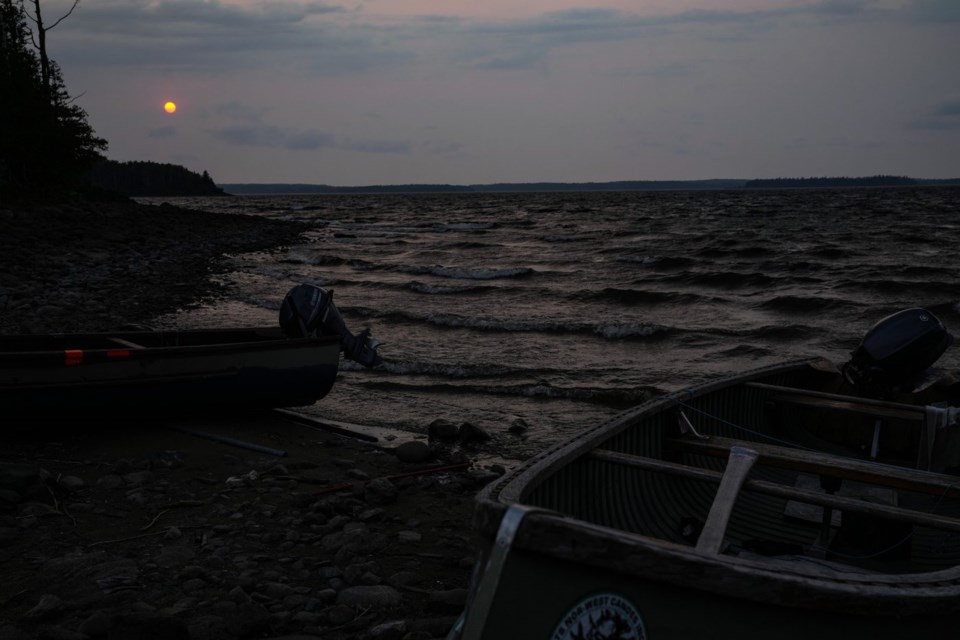TORONTO — Last-minute changes to a controversial Ontario mining bill are not good enough and ignore a central plea to work together on drafting legislation, First Nations said Thursday.
Grand Chief Alvin Fiddler of Nishnawbe Aski Nation, which represents 49 First Nations in northern Ontario, said the province should scrap Bill 5 and write a new law alongside Indigenous leaders that would allow for shared prosperity.
"It's just way too late in the process. It's an insult to our leadership for the government to now come back to us with some proposed amendments," Fiddler said. "It's just not acceptable."
The proposed law seeks to speed up the development of large projects such as mines, and while First Nations are not necessarily opposed to such moves, they want a seat at the decision-making table.
The legislation proposes to create so-called "special economic zones" that would suspend provincial and municipal laws for certain projects.
The province intends to name the Ring of Fire as the first such zone, but ministers leading the file have promised that affected First Nations will be consulted first.
The legislation has sparked furor among First Nations who say it tramples their rights and ignores their concerns.
Ontario Regional Chief Abram Benedict of the Chiefs of Ontario, which represents all 133 First Nations in the province, echoed Fiddler's sentiments.
"We've heard clear from our communities they're not happy with the process," he said.
"They really feel like it's undermining their rights and their jurisdiction and authority to their land, territory and resources. The government needs to rethink the process."
The province is making amendments that would include explicit duty-to-consult provisions throughout the bill. It is also amending the bill to include Indigenous-led special economic zones at the request of some First Nations, though details about how that would work are sparse.
The bill has also angered environmentalists as it would strip protections for endangered and threatened species and give more power to cabinet to determine which animals and plants can be placed on protected lists.
Indigenous Affairs Minister Greg Rickford and Energy and Mines Minister Stephen Lecce promised to consult heavily this summer with First Nations, especially the ones in the Ring of Fire region, which is 450 kilometres north of Thunder Bay, Ont., and said to be replete with critical minerals.
"We're fully committed to getting this right," Lecce said Thursday.
The province has shown no sign of killing the bill.
Three First Nations have signed shared prosperity agreements with the province as part of the process to build out the roads and infrastructure needed to get to and from the Eagle's Nest mine in the Ring of Fire.
The roads will also connect two First Nations, Marten Falls and Webequie, to the provincial highway system.
Both First Nation leaders say their member nations are not only disappointed, but furious at how the government went about crafting this bill.
Fiddler reiterated a pledge many First Nations people have told him in recent days: that they will take the fight to the land if the bill becomes law.
"There will be fierce resistance from our side," he said.
He said he is at a loss to explain why the government wouldn't work with Indigenous leadership in advance on this legislation, since First Nations and the province have shared goals.
He pointed to recent work with the solicitor general on legislation and regulations to designate the Nishnawbe Aski Police Service as an essential service and bring it under the Community Safety and Policing Act.
That historic agreement will double the northern First Nation police force in size to more than 500 officers, and includes a $514-million funding agreement to modernize the force.
"We were there with them right from day one," Fiddler said.
Benedict and his leadership council are set to meet with Ford, Rickford and Lecce within the week, he said.
He stressed that First Nations are not against development or mining and want to be partners. But they need a partner they can trust and that doesn't exist at the moment, he said.
"Everybody wants to be part of the Canadian economy, part of the Ontario economy, wants to ensure that we are a safe, secure community," he said.
"In order to achieve that, everybody has to be sitting at the table to have these conversations about how we can get there together."
A filibuster by New Democrats and Liberals forced a delay in the committee process to adopt the bill, but the province still hopes to pass the bill into law next week.
This report by The Canadian Press was first published May 29, 2025.
Liam Casey, The Canadian Press




